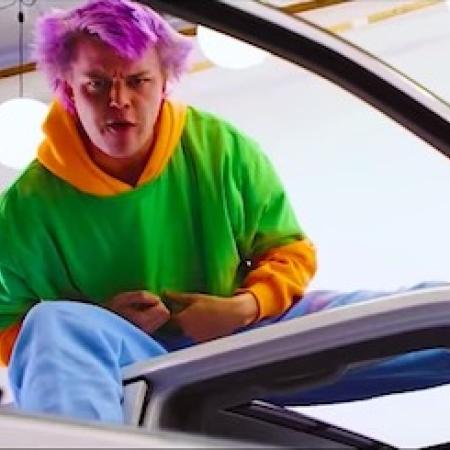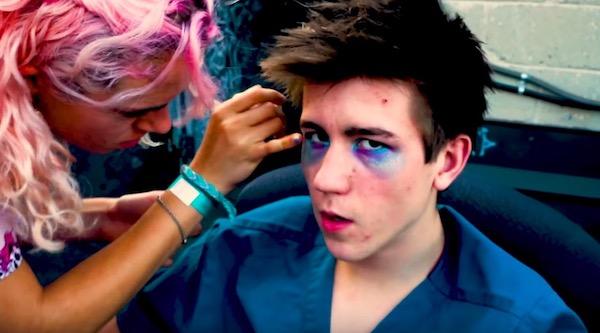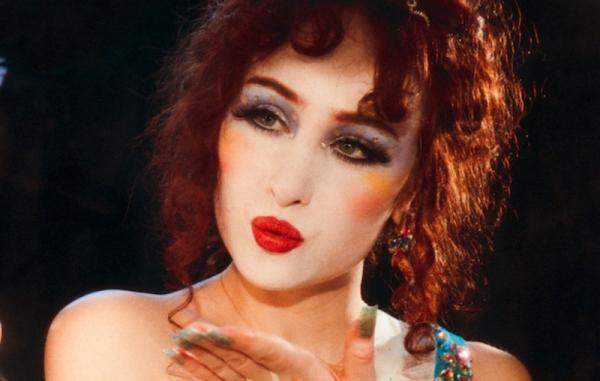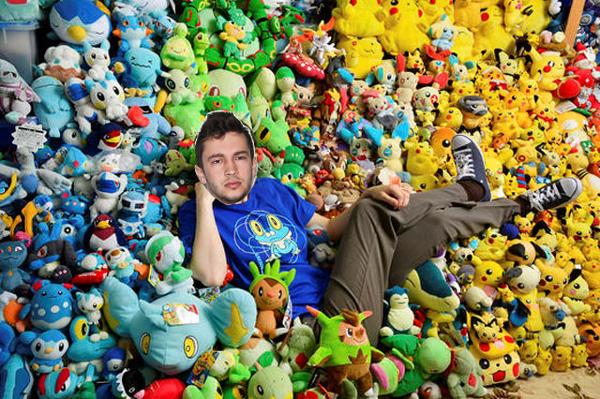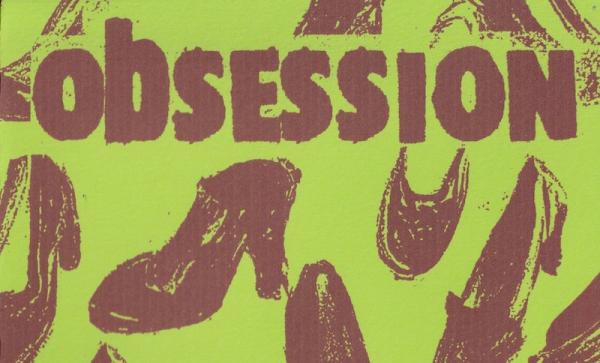As reported on recently, The 1975 have mailed 1,500 care packages at random to fans all around the world, and as is to be expected from the band, the contents of their care packages have only incited more and more questions, and very few answers.
Most obviously, the care packages have introduced two brand new Dirty Hit catalogue numbers, DH00279 and DH00331. The latter is assumed to be assigned to the care packages themselves, as sometimes the label assigns catalogue numbers to merch items (e.g. the official Dirty Hit tote bag is DH00149), but DH00279 is a complete mystery - appearing for the first time in the care package's typewriter-written letter.
Here's a list of the Dirty Hit catalogue numbers that have been revealed so far, that have had confirmed relevance to The 1975's 'Music For Cars' albums era, or are currently just meaningless gibberish:
DH00271 = Unknown // DH catalogue number in band manager Jamie Oborne's Twitter bio.
DH00279 = Unknown // DH catalogue number on the typewriter-written letter in the care packages.
DH00280 = Unknown // DH catalogue number in Matty Healy's Twitter bio.
DH00325 = 'A Brief Inquiry Into Online Relationships' album.
DH00327 = Unknown // DH catalogue number on the very first street posters that went up.
DH00328 = 'Give Yourself A Try' single.
DH00331 = DH catalogue number on the care-package zine + stencil + plastic packaging.
DH00334 = 'Love It If We Made It' single.
And some other noteworthy things:
- The front of the care-package's packaging repeats a lot of the MFC copy we have already seen for this era:
- And the back of the packaging quotes the prose from this first 'A Brief Inquiry Into Online Relationships' poster, which fans thought at the time of release might have contained hints at song-names with the phrases inside apostrophes:
- Fans originally thought that the DH00331 labelled black box logo sticker was just that, a sticker, but it's since been clarified by Jamie Oborne that it's actually a "stencil". Assumedly, the sticker is either for a one-time détournement use, or could be stuck onto cardboard and cut out for use as a multi-purpose stencil.
- The typewriter-written letter included in the care package opens with the title "IT'S GONNA BE A RIOT!!!!!" and the unknown catalogue number DH00279, which is strange because the letter goes on to quote the opening-lines of the band's new single, 'Love It If We Made It', which has a different catalogue number (DH00334). In this interview with Matty Healy, he says about the lyrics of 'Love It If We Made It' that, "A lot of the things that I say in that are direct quotes of people or are headlines I've read," which rings true about this next part of the letter, quoting a headline from The Mirror and a 2005 interview with Donald Trump ("When you're a star, they let you do it. You can do anything. 5 ways to save money as parents of three after the birth of the royal baby"). Now here's where it gets confusing again, the next part of the letter is all crossed out, but seems to be prose written by Healy contemplating the difficulties of living in 'the present' and culminating in the realisation that, "The present is too present - ones expectation to create memories obfuscates the creation of said memories. Too much expectancy on the present. Performance anxiety." Although beautifully written (and ending on a highly entertaining note), this part of the letter feels out of theme with 'Love It If We Made It', so perhaps is instead a hint at the theme of whatever the catalogue number DH00279 represents - maybe one of the next songs to be released from the 'A Brief Inquiry Into Online Relationships' album? But the most important part of the letter is perhaps in the ending, during which Healy writes that "there's an anxiety to the 3rd that isn't present in the first or second or fourth," revealing that the lyrical themes of 'A Brief Inquiry Into Online Relationships' are exclusive only to this album. You can read the letter in full here (without hard-to-read crossed out bits).
- The care package's zine opens with this graphic already familiar to fans:
- Page 2 quotes the same copy as the back of the care package's packaging, but highlights a secondary message: A comprised online identity.
This prose poetry is written in a similar style to Scottish poet Robert Montgomery, who is best known for his modern-day détournement and... bringing poetry to the streets. Ha!
- Page 3 contains an illustrated diagram which appears to be likening its depiction of "normal" and "maximum" authentic interaction areas with the process of recording an album... but really, who knows?
- Pages 4 and 5 speak for themselves (and yes, that's the same child in a VR headset as seen first here):
- Page 6 contains some very relatable social anxiety (or maybe Matty has just been watching 'Bounce' recently):
It's worth noting though that Page 7 displays the below photo of Matty, which has perhaps been deliberately placed, hinting at 'The Wrong Drink' story being a virtual reality storyline that Matty may be experiencing in the below photo - an ironic take on social anxiety being commodified into a virtual reality experience.
- Page 8 depicts a conversation with Apple's virtual assistant, Siri, harking back to this conversation between Google researchers and an artificial intelligence.
- Page 9 continues on from Page 2 with the same copy as on the back of the care package's packaging, but with the highlighted message: Programmed stranger.
- Page 10 is captioned, "It's not living - if it's not with you," which is the name of a 'Music For Cars' song that Matty teased back in November 2017. If this page is a song-title teaser, does that mean there are more song-titles hidden throughout the zine?
Update: 'It’s Not Living If It’s Not With You' is confirmed to be on the album - Healy discusses the song in this new interview.

- Page 11 has the same art as a street poster from back in May:
- Page 12 quotes a 2016 article from Globalo titled, '5 Scary Facts You Didn't Know About The Internet! Shodan - the scariest search engine on the Internet,' under the heading, "What makes the internet so terrifying?" Here's some more from the article following the quote printed in the zine:
"A user can find specific types of computers connected to the internet by just using a variety of filters. Some describe it as a search engine of service banners, which is Meta-content being sent to the client by the server. It can inform you about the server software, the service support or anything else the client can find out before interacting with the server.
Shodan searches have located command and control systems for nuclear power plants and a particle accelerating cyclotron to cyber security researchers. A search for “default password” reveals countless servers and system control devices that use “admin” as the user name and “1234” as the password, the only requirement for access being a web browser to connect. Independent security penetration tester Dan Tentler demonstrated at The Defcon cyber security conference the use of Shodan to access control systems for evaporative coolers, pressurized water heaters, and garage doors. He also found an entire city’s traffic control system connected to the Internet and could be put into “test mode” with a single command entry. “You could really do some serious damage with this,” Tentler said, in an understatement. Other search engines, such as the global mammoth for information, Google (GOOG) crawls the Web looking for websites whereas Shodan navigates the Internet’s back channels. It looks for the servers, webcams, printers, routers and all the other stuff that is connected to and makes up the internet. It’s kind of the “Dark” Google.
The larger picture is that a number of these devices should not be online at all. The problem lies when most IT departments connect all system into a web server, which without noticing shares them with the rest of the world."
Read the full article here.
- Page 13 appears to be a follow-up to Healy's 'The Ballad Of Me And My Brain' doodle (also below), offering a look inside his head, literally.

For an even earlier self-portrait, here's Healy's from our 2014 interview:
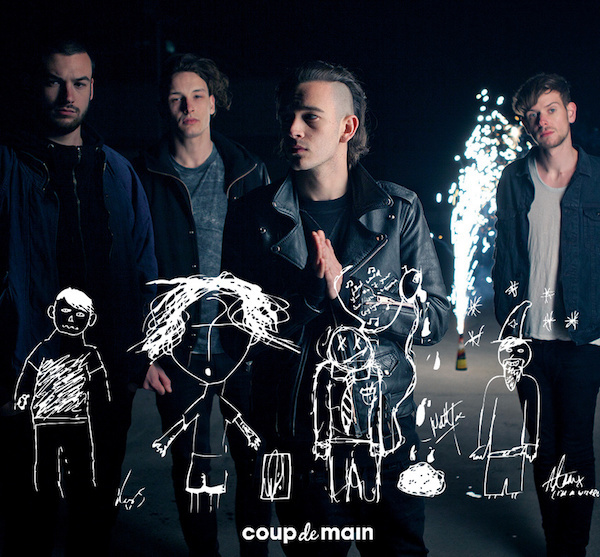
- It's hard to make out what the French words on Page 14 are exactly, but it's probably something to do with this.
- Page 15 references Lil Peep (who is mentioned in the lyrics of 'Love It If We Made It') and his song 'Crybaby'.
- Page 17 bears a familiar refrain: "If I don’t get to see the beauty of the end of culture; then at least I’ve seen the culture of the end of beauty."

- Interestingly, Page 18 depicts a drawing of a truth-seeking teddy bear (drawn in the style of an Instagram post), which seems especially pertinent as the 'Give Yourself A Try' music video opens with Matty talking to a teddy bear therapist, and quite often one of the first relationships a child forms (aside from their family) is with their first soft toy... and we're also choosing to interpret the inclusion of the hashtag, #Fortnite, as evidence that Adam Hann is currently living his best life winning against everyone playing the video game.
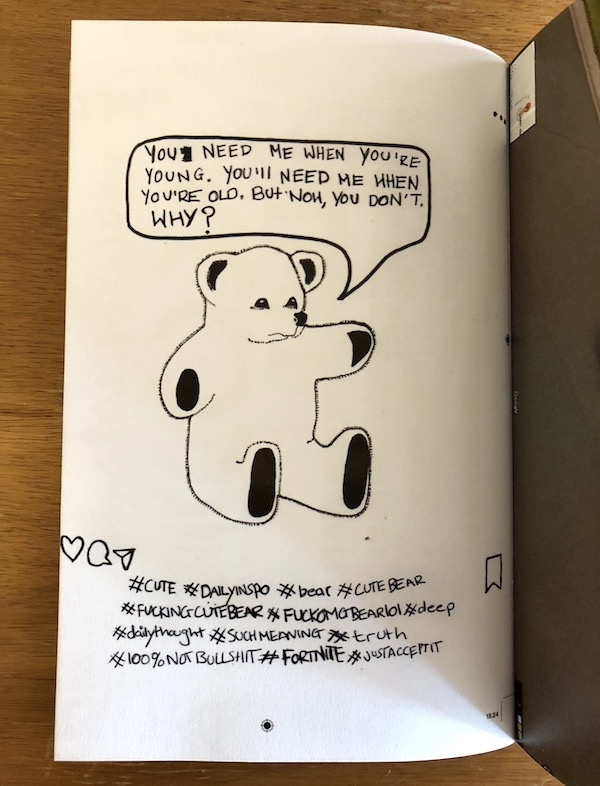
- Page 19 references the viral incident of, 'When a Google Street View car meets a Bing car, only one can survive.'

- Page 20 quotes a 2017 conversation between two bots at the Facebook Artificial Intelligence Research Lab, which although seemingly non-sensical, many believe to be a transcript of the bots learning how to make their own non-human language. Read more about this here.

- AND there are five pages in the zine with timestamps at the bottom of the page which appear to have been deliberately left visible when other nearby text has been crossed out. As to if these mean anything, we have absolutely no idea, but feel free to send us advice on how to battle insomnia to: @coupdemain


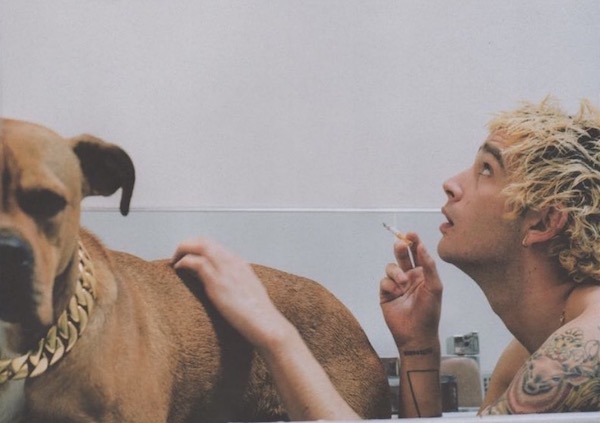
 The 1975
The 1975
